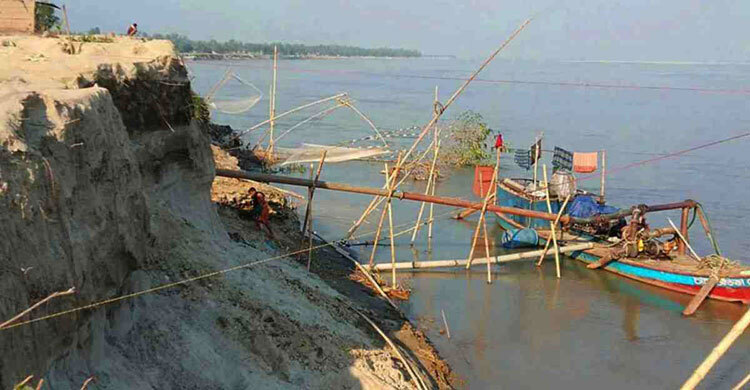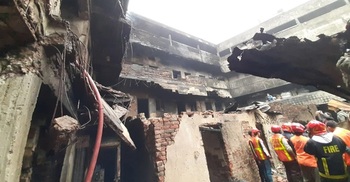Jamuna loses battle to illegal sand mining in Sirajganj

Illegal and unabated sand extraction is causing serious erosion on a six-kilometre stretch on the bank of Jamuna River in Sirajganj’s Shahjadpur Upazila, reports UNB.
Residents of 10 villages are facing untimely erosion as the river gobbles up their homes, properties and agricultural land. Administrative action has failed to stop sand lifting and the locals are too afraid to protest against them fearing for their safety.
Locals say unscrupulous businessmen have been extracting sand from various points with dredgers from the upazila’s Khukni, Jalalpur, Koijuri and Gala unions. Locally influential people are backing the multi-million Taka illegal trade.
The practice remains temporarily suspended after drives by the upazila administration but resumes within a few days. Extraction of the ‘Raw Gold’, as the sand lifters call it, does not cost much but fetches a huge amount of money.
Globally, humans consume up to 50 billion metric tons of sand and gravel every year, amounting to 18 kilograms per person per day, according to a UN report released in May last year.
Locals alleged that the sand lifters are working in collusion with some corrupt local administration officials. The claim could not be verified independently.
Rapid urbanisation is driving up the demand for sand. There is no precise data on how much sand is used in Bangladesh every year. In recent years, the demand for sand has grown dramatically, prompting suppliers to look elsewhere like beaches and the seafloor.
The hunger for sand is now threatening the new flood embankment from Koijuri to Bherakola.
A number of the area’s residents said they have informed the upazila administration repeatedly but no concrete step had been taken.
Additional Deputy Commissioner Mohammad Tofazzal Hossain said they would not allow illegal sand lifting from the Jamuna River and their drive against the practice would continue.
The UN Environment report said aggregate extraction in rivers has led to pollution, flooding, lowering of water aquifers and worsening drought occurrence.
It showed that sand extraction is far outstripping the rates at which it is replenished and noted that the insatiable demand for sand now poses “one of the major sustainability challenges of the 21st century,” and meeting it will require “improved governance of global sand resources”.







